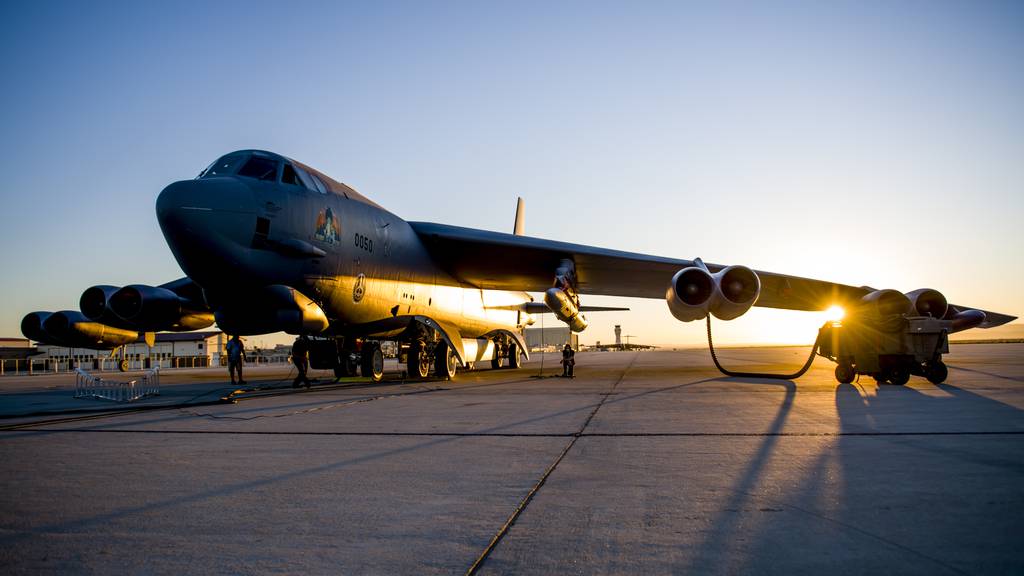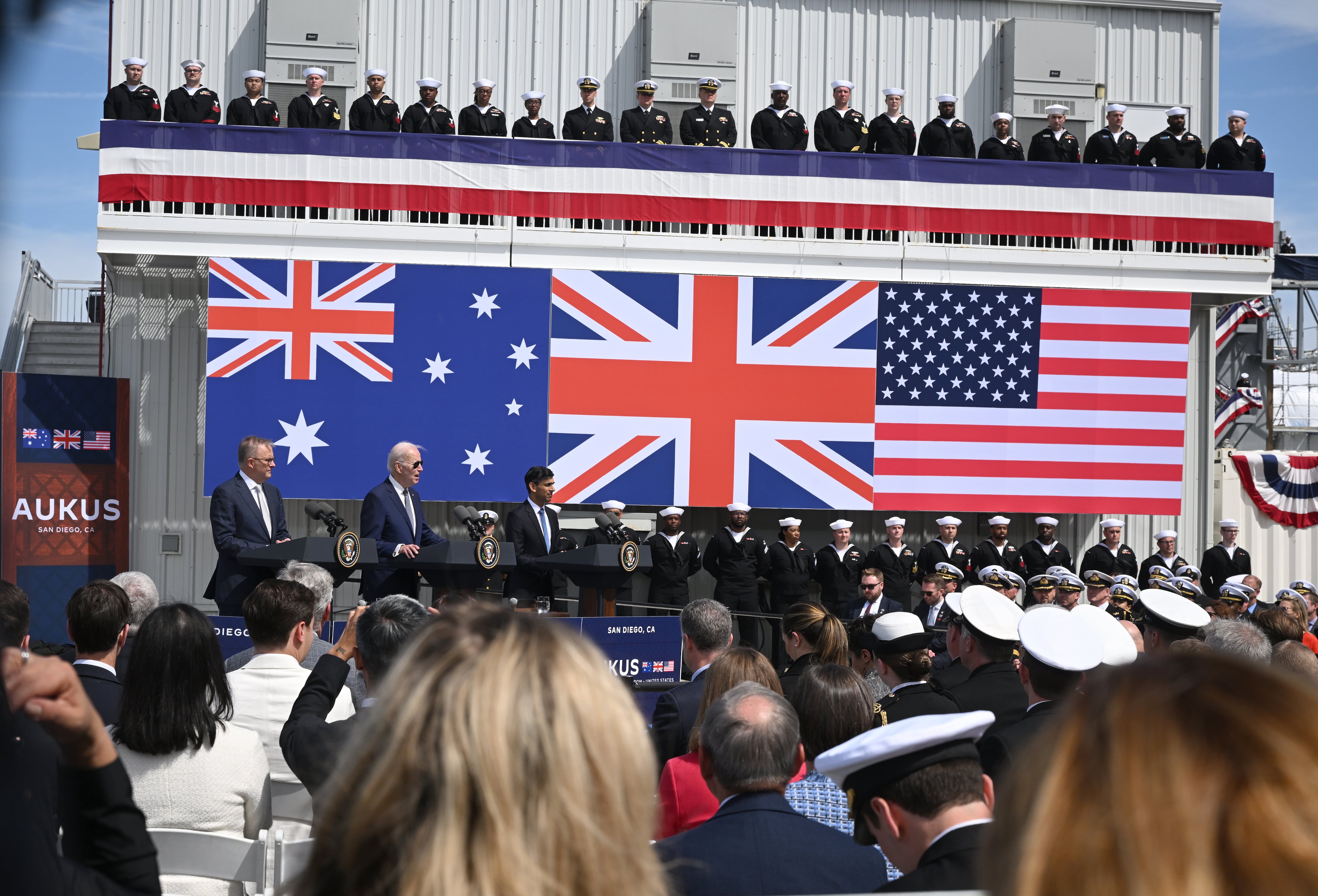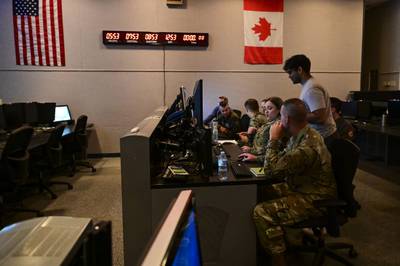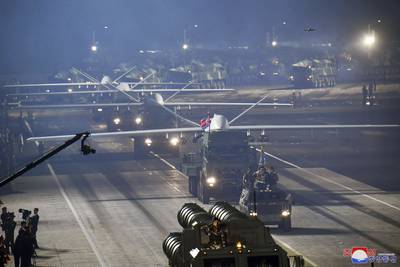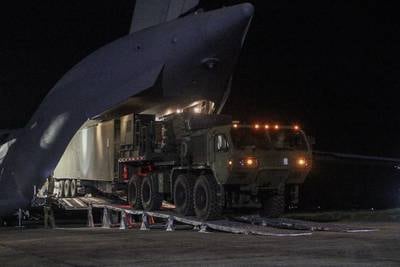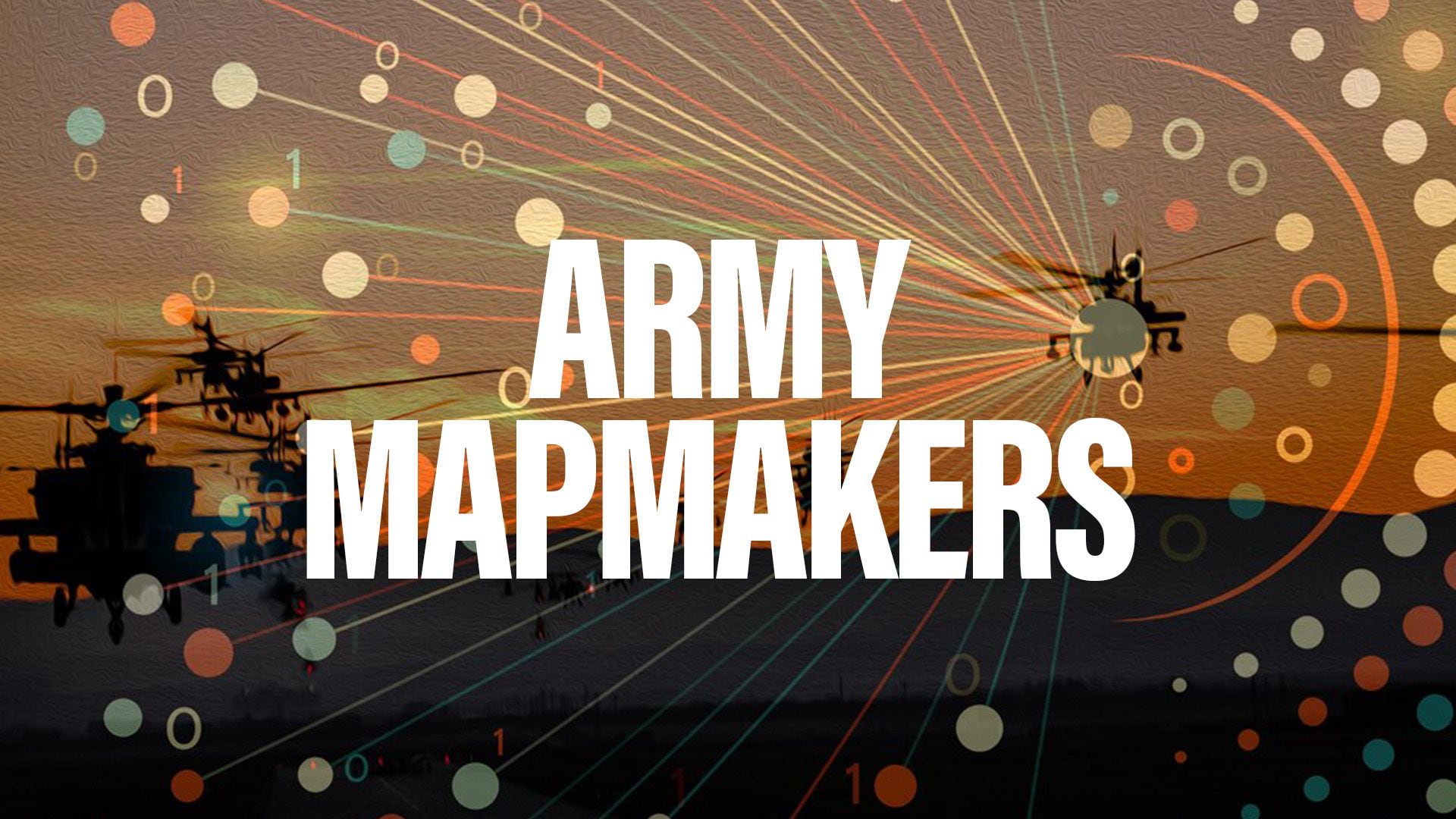This story was updated March 20, 2024, with a statement from Lockheed Martin.
The U.S. Air Force on Sunday carried out what is expected to be the final test of the hypersonic AGM-183A Air-launched Rapid Response Weapon.
The service did not say whether the test was successful.
In a statement to Defense News, an Air Force spokesperson said a B-52H Stratofortress carried out the test of the fully operational ARRW prototype, referred to as an all-up round test, after taking off from Andersen Air Force Base in Guam. The test was carried out at the Reagan Test Site, an Army facility in the Marshall Islands.
The Air Force declined to identify the test’s objectives, but said it “gained valuable insights into the capabilities” of the Lockheed Martin-made hypersonic weapon.
“This test acquired valuable, unique data and was intended to further a range of hypersonic programs,” the spokesperson said. “We also validated and improved our test and evaluation capabilities for continued development of advanced hypersonic systems.”
In a follow-up statement, Lockheed Martin said it is ready to deliver ARRW technology or other hypersonic capabilities to the Air Force.
“Following the recent end-to-end flight test, Lockheed Martin has completed the test program with full confidence in ARRW’s revolutionary capabilities, and we stand ready to deliver this fully-qualified, hypersonic solution to the U.S. Air Force,” the company said. “Building on ARRW’s industry-leading technology and testing success, Lockheed Martin can quickly deliver additional hypersonic-strike assets that can be rapidly deployed to the U.S. military.”
ARRW is one of the Air Force’s two main programs to develop an air-launched hypersonic weapon that could fly faster than Mach 5 and be highly maneuverable. China and Russia have invested heavily in their own hypersonic weapons, and the Pentagon is under pressure from Congress to show more progress toward fielding the United States’ own capabilities.
Air Force Secretary Frank Kendall last year told lawmakers the ARRW program had “struggled” in testing, shortly after a March 2023 test failed.
Air Force officials said earlier this month that ARRW’s upcoming test would be its last, and the service plans to wrap up its rapid prototyping program this year. The service requested no funding to procure ARRW, nor conduct any research and development, in 2025.
Kendall has sounded a more optimistic tone about the Hypersonic Attack Cruise Missile program, and the fiscal 2025 budget request proposes $517 million to keep developing that program. The HACM weapon, developed by Northrop Grumman and RTX subsidiary Raytheon, is an air-breathing missile that the Air Force said would be smaller than ARRW and able to fly along “vastly different trajectories” than the boost-glide ARRW.
The Air Force assistant secretary for acquisition, technology and logistics told reporters earlier this month that the service will study the results of the final ARRW test to help it decide what hypersonic capabilities it will need.
Stephen Losey is the air warfare reporter for Defense News. He previously covered leadership and personnel issues at Air Force Times, and the Pentagon, special operations and air warfare at Military.com. He has traveled to the Middle East to cover U.S. Air Force operations.
